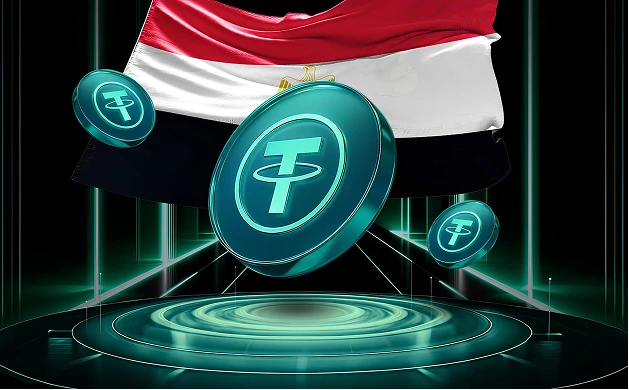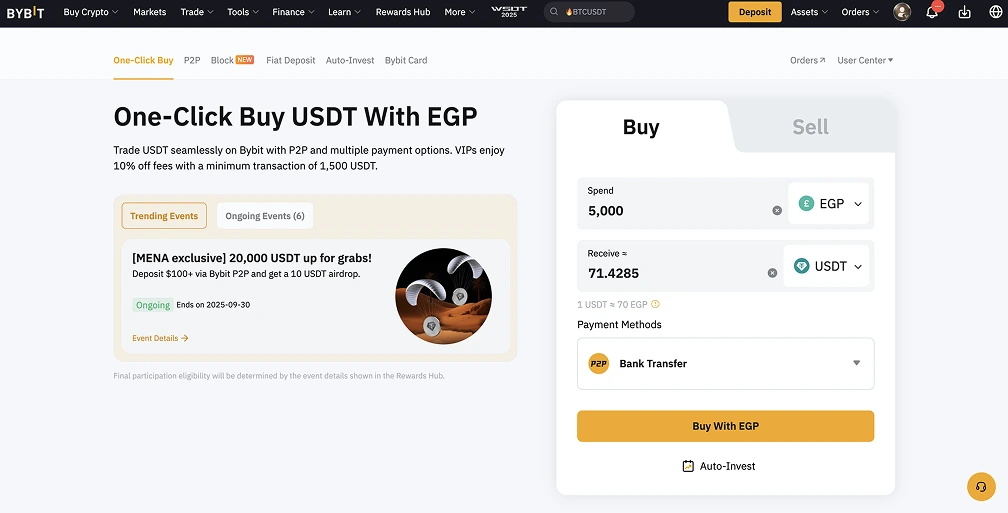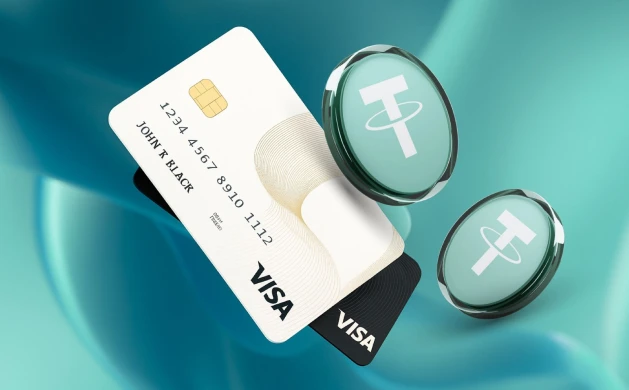How to Buy Tether (USDT) in Egypt

Summary: Egyptians cannot legally buy or promote Tether (USDT) under Law No. 194 of 2020, yet many still access it through offshore exchanges with EGP P2P transfers.
Platforms like Bybit, OKX, and Gate provide active USDT markets and support local bank payments, though users face legal risks.
Bybit is the best choice for Egyptians to buy Tether (USDT) because it offers deep liquidity, low fees, and reliable EGP P2P transfers backed by strong security.
Available Cryptos
Tether (USDT) and 2,000+ Cryptos
Trading Fees
0.1% Fee and Free Deposits
EGP Deposit Methods
Bank Transfer, Cards, Google Pay & More
Is Buying Tether (USDT) Legal in Egypt?
No, Egyptians cannot legally buy, trade, or promote Tether (USDT). Law No. 194 of 2020 prohibits all unlicensed crypto activity, and the Central Bank of Egypt (CBE) has never issued licenses, making these activities formally illegal.
The framework is strict on paper, with penalties of imprisonment and fines up to EGP 10 million. However, enforcement has been limited, and most major global exchanges continue to accept Egyptian users. This creates a gray area where residents access USDT despite the prohibition.
Investors should understand the risks: using offshore platforms may expose them to legal consequences, frozen funds, or scams.
How to Buy Tether (USDT) in Egypt
The best way for Egyptians to buy Tether (USDT) is through Bybit, a global exchange serving over 160 countries. Bybit’s peer-to-peer (P2P) marketplace makes it simple to purchase USDT in Egyptian pounds (EGP) using transfers from local banks such as the National Bank of Egypt (NBE) and Banque Misr.
Bybit lists over 2,000 cryptocurrencies with deep liquidity on USDT pairs. Investors also have access to stablecoin yield products, offering opportunities to earn passive income after completing a purchase.
Step-by-step guide to buying USDT on Bybit with an Egyptian bank:
- Create an Account: Register on Bybit and complete KYC verification to activate deposits and trading.
- Enter Amount and Currency: Go to the One-Click Buy page, select EGP, and enter the amount you wish to spend. The platform will display the USDT equivalent.
- Select Payment Method: Choose P2P and filter for sellers who accept your bank (e.g., National Bank of Egypt or Banque Misr).
- Confirm Purchase: Transfer funds through your bank, confirm the payment, and receive USDT directly into your Bybit wallet.

EGP to USDT Fees
Egyptian investors converting Egyptian pounds (EGP) into Tether (USDT) should understand the key costs involved. Here’s a breakdown of typical fees:
- Deposit Fees: Buying USDT through Bybit’s P2P marketplace using banks such as the National Bank of Egypt or Banque Misr generally has little to no deposit cost. Card payments or third-party intermediaries may charge between 1% and 2%.
- Withdrawal Fees: Converting USDT back into EGP through P2P usually carries minimal cost. Sending USDT to an external wallet requires paying blockchain network fees, which fluctuate with network activity.
- Trading Fees: On Bybit, spot trades incur about 0.1% per transaction. For futures or higher-volume trading, a maker-taker model applies, with maker fees near 0.02% and taker fees around 0.055%.
Tip: To reduce costs, prioritize P2P bank transfers and trade on exchanges with transparent fee schedules like Bybit.
Best Exchanges for Buying USDT in Egypt
Beyond Bybit, several global exchanges offer EGP funding through P2P transfers and provide active USDT trading markets, giving investors additional options. Here’s a quick comparison of the leading platforms Egyptians use to buy USDT with EGP:
Tax Implications for Tether (USDT) in Egypt
Egypt does not have a dedicated tax framework for cryptocurrencies like Tether (USDT). However, profits from crypto trading may fall under standard income tax rules, with rates ranging from 10% to 25% for individuals and 22.5% for corporations. The Egyptian Tax Authority (ETA) can scrutinize undeclared crypto income as taxable earnings.
Unlike listed securities on the EGX, which now face only a 0.1%–0.115% stamp duty, crypto remains outside the regulated financial system.
This creates legal uncertainty: while there is no formal capital gains tax on USDT, investors risk penalties under Law No. 194 of 2020 for unlicensed activity.
Final Thoughts
Buying USDT in Egypt remains legally prohibited, but many residents still use offshore exchanges through P2P transfers.
If you decide to proceed, weigh the risks carefully, use reputable platforms with strong security records, and keep detailed records of your activity for potential tax obligations.
Staying informed about Egypt’s regulatory stance and limiting exposure to trusted exchanges like Bybit or BitOasis can reduce legal and financial risks while giving you access to stablecoin markets.
Frequently asked questions
Can Egyptians use crypto wallets to store USDT?
Yes. Egyptians can hold USDT in self-custody wallets such as Trust Wallet, TronLink, or hardware devices like Ledger. These wallets keep funds off exchanges, but ownership of USDT remains legally prohibited under Egyptian law.
How does Egypt’s ban on USDT affect remittances?
Egyptians often send USDT abroad on blockchains like Ethereum, Tron, Base, or Solana, where transfers occur permissionlessly and settle within minutes. While this makes remittances faster and cheaper than traditional channels, the activity remains outside Egypt’s legal and banking framework, leaving users exposed to compliance risks.
What risks do Egyptians face when using P2P platforms?
Key risks include account freezes, scams from unverified sellers, and legal exposure under Law No. 194 of 2020. Choosing exchanges with escrow protection, verified traders, and secure payment channels lowers these risks but does not eliminate them.
Are bank transfers for USDT purchases in Egypt traceable?
Yes. P2P transactions funded through Egyptian banks are visible to both the banks and regulators. While enforcement has been inconsistent so far, authorities could review or block suspicious transfers at any time.
.webp)
Written by
Jed Barker
Editor-in-Chief
Jed, a digital asset analyst since 2015, founded Datawallet to simplify crypto and decentralized finance. His background includes research roles in leading publications and a venture firm, reflecting his commitment to making complex financial concepts accessible.

.webp)
%2520(1).webp)






